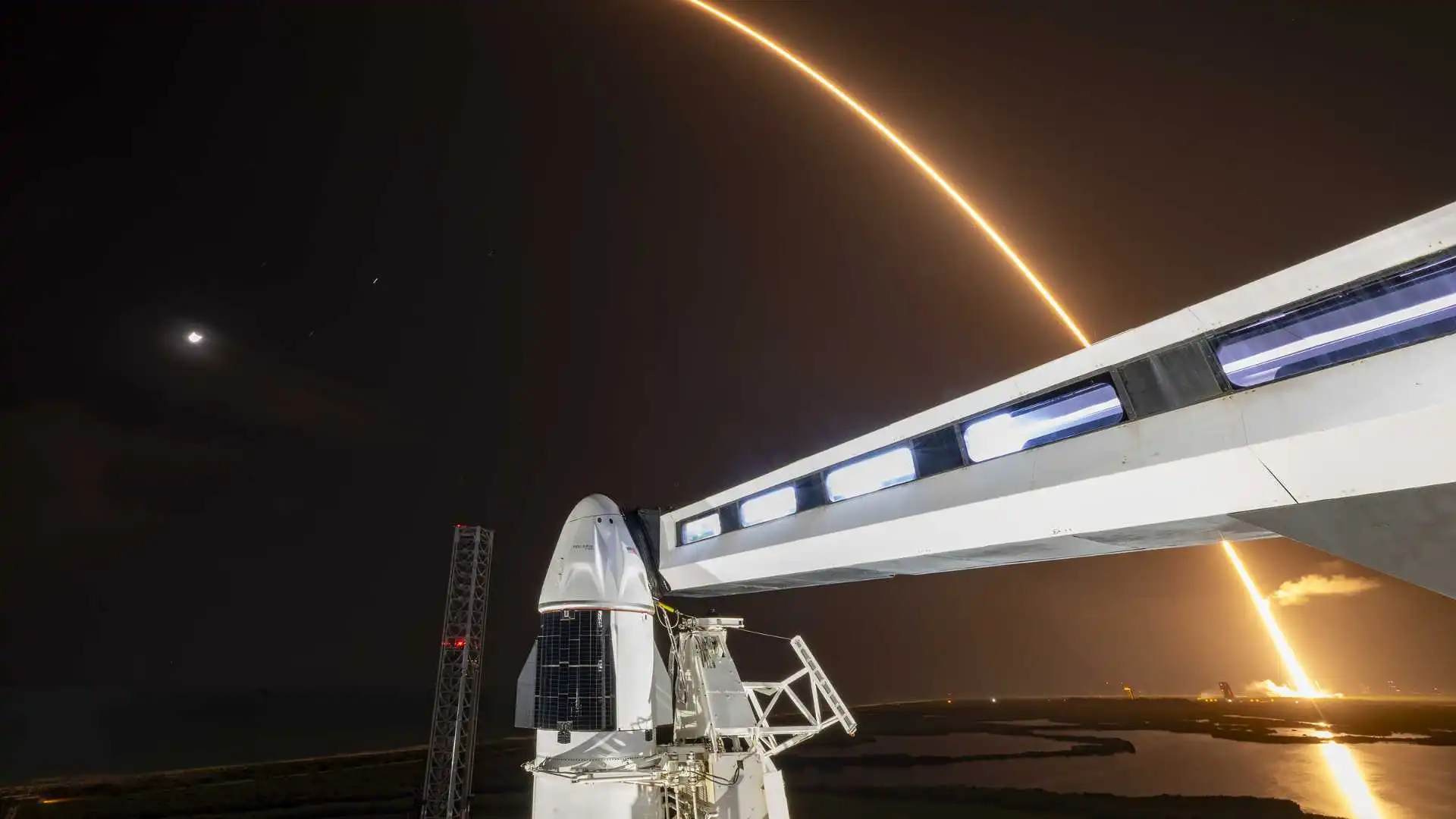SpaceX’s ambitious space launch schedule faces a significant delay following a dramatic incident off the coast of Florida. The company’s Falcon 9 rockets have been grounded by the Federal Aviation Administration (FAA) after a booster rocket toppled over and erupted in flames while landing on Wednesday.
The accident occurred during the predawn hours as the rocket returned to its ocean landing platform. Despite the dramatic visuals of the fireball, no injuries or public damage were reported. The mishap has led the FAA to initiate an investigation and halt all Falcon 9 launches until a thorough review is completed.
Falcon 9 launches 21 @Starlink satellites to low-Earth orbit from Florida pic.twitter.com/PoDEjGYGSM
— SpaceX (@SpaceX) August 28, 2024
Advertisement · Scroll to continue
The Falcon 9 rocket, which had successfully deployed 21 Starlink internet satellites into orbit, encountered trouble when the first-stage booster, making its 23rd flight—a recycling milestone for SpaceX—collapsed and caught fire shortly after landing. The incident marks the first such accident in years for SpaceX.
The FAA’s investigation will require SpaceX to submit its findings and corrective actions before the company can resume its Falcon 9 launch operations. In the wake of the accident, a planned launch from California, also aimed at deploying Starlink satellites, was immediately canceled.
SpaceX Vice President Jon Edwards expressed the company’s commitment to resolving the issue as swiftly as possible. “Losing a booster is always sad. Each one of them has a unique history and character. Thankfully this doesn’t happen often,” Edwards shared on X.
The disruption comes at a critical time for SpaceX, affecting upcoming missions, including a private spaceflight from Florida’s Kennedy Space Center and a NASA crewed launch scheduled for late next month. This crewed mission will include two astronauts who had previously flown aboard Boeing’s Starliner capsule, which NASA deemed unsafe for their return.
As SpaceX works to address the root cause of the accident and secure FAA approval to resume flights, the company’s space ambitions and scheduled missions remain in a state of uncertainty.
Also Read: NASA’s Perseverance Rover Embarks On Ambitious Climb To Unlock Mars’ Geological Secrets























